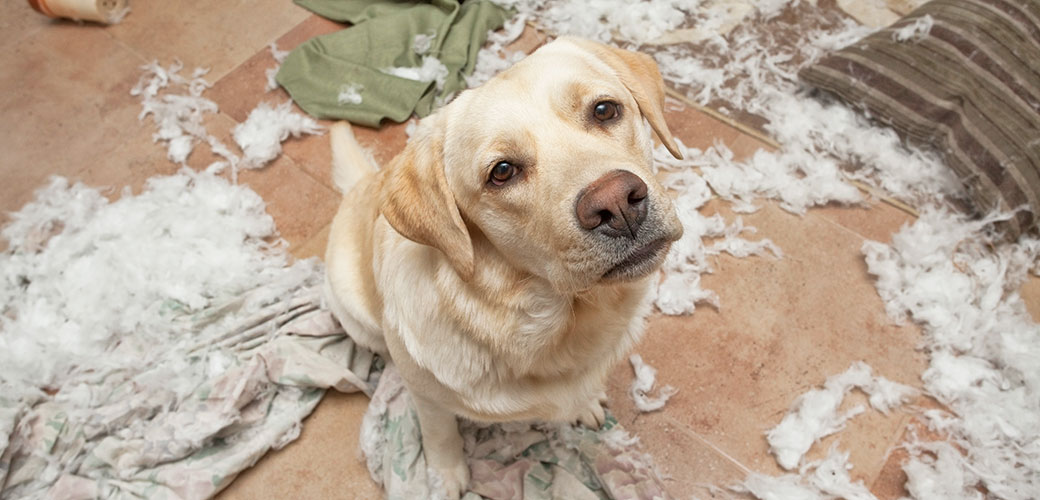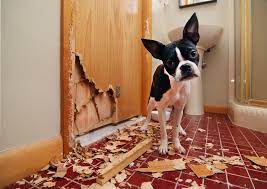Do you own a dog? One of the most common behavioral issues our canine friends face is separation anxiety in dogs. It’s just what it sounds like—your dog gets anxious when they’re separate from you. But because separation anxiety can lead to serious problems like house soiling, loud vocalizations, and destructive behavior, it’s more than a nuisance. Read on as your veterinarian San Jose, Jacksonville, FL tells you more about separation anxiety and what you can do about it.
What causes separation anxiety?
Dogs are social animals. In the wild, they live in packs—those instincts don’t automatically go away when our canine friends are domesticated. Dogs need a sense of stability and hierarchy in their lives, and they get it from us. So, when Fido is separated from you, he might become anxious. You can learn more about dogs’ wild pack instincts by calling your vet San Jose, Jacksonville, FL.
Note that separation anxiety can occur when you leave home entirely. But it can also happen simply when you leave the room. It simply depends on the dog. Some have more serious cases of separation anxiety than others. Ask your vet clinic San Jose, Jacksonville, FL if your dog’s behavior constitutes separation anxiety.
What are the signs of separation anxiety?
Some common signs of separation anxiety include attempted escape, destructive chewing or scratching, drooling, howling, barking, whining, and elimination in the house. Some dogs exhibit coprophagia, or the consumption of their fecal matter. Ask your veterinarians San Jose, Jacksonville, FL about other possible signs of separation anxiety in dogs.
It’s important to realize that some of these symptoms could be caused by a variety of other illnesses or problems. Your veterinary clinic San Jose, Jacksonville, FL may need to run tests to rule out other possible causes of these symptoms.
How can separation anxiety be dealt with?
You can take steps to deal with separation anxiety on your own at home. It’s when they don’t work that you should reach out to your pet clinic San Jose, Jacksonville, FL for help.
First, try desensitization. This involves leaving Fido at home alone for very short periods and reinforcing their good behavior with praise and treats. Gradually, you can increase the length of time you leave. It’s essential that you remain consistent and take it slow. Ask your animal hospital San Jose, Jacksonville, FL for more advice on this technique.
You should make your coming and going from the home as uneventful as possible. Try to avoid possible triggers, like keys jingling or a purse being moved, which your dog will very likely associate with being left alone. Consult your veterinarian San Jose, Jacksonville, FL for more insights into what could trigger your dog.
If avoiding stress triggers and a prolonged desensitization program don’t work, you’ll want to seek the help of your vets San Jose, Jacksonville, FL or a professional animal trainer. In the most severe cases, anti-anxiety medication can be prescribing. These drugs are usually combined with a behavior modification regimen to achieve maximum results. If you’re dealing with separation anxiety in your dog, contact us for help. Set up an appointment here at your animal hospital San Jose, Jacksonville, FL. We can examine your dog and help you find a solution that works.


